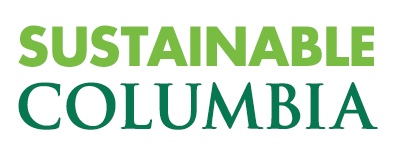Office of Sustainability’s Jessica Prata Speaks at “Everyone Can Teach Climate” Event
The event’s mission of supporting the integration of climate teaching across disciplines and fostering connections to campus as a living lab supports Columbia’s Plan 2030 and the Office of Sustainability’s new implementation pathway Living Net Zero.
Image Carousel with 4 slides
A carousel is a rotating set of images. Use the previous and next buttons to change the displayed slide
-
Slide 1: Jessica Prata presenting at the event
-
Slide 2: Jessica Prata presenting at the event
-
Slide 3: Jessica Prata presenting at the event
-
Slide 4: Jessica Prata presenting at the event
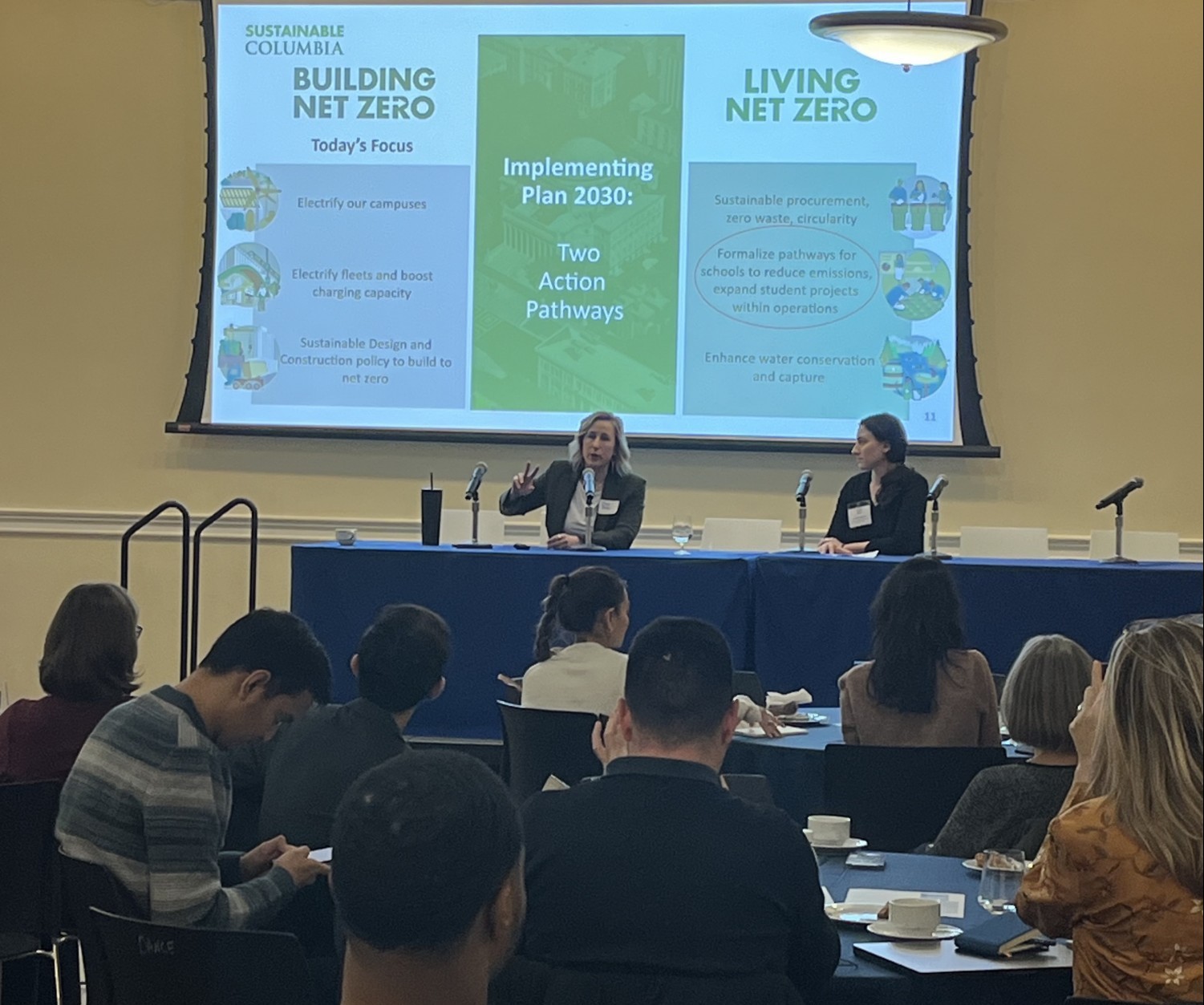
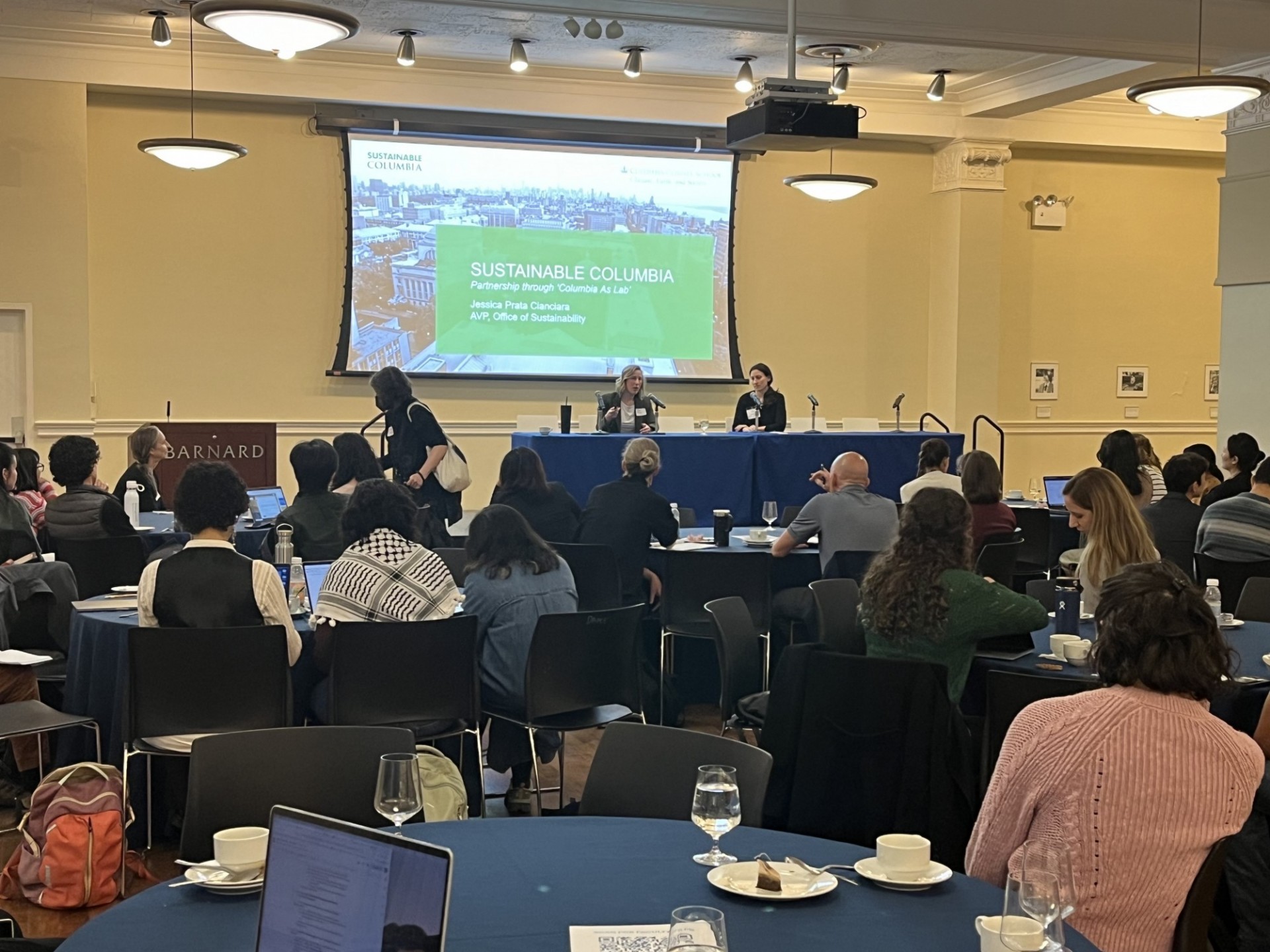
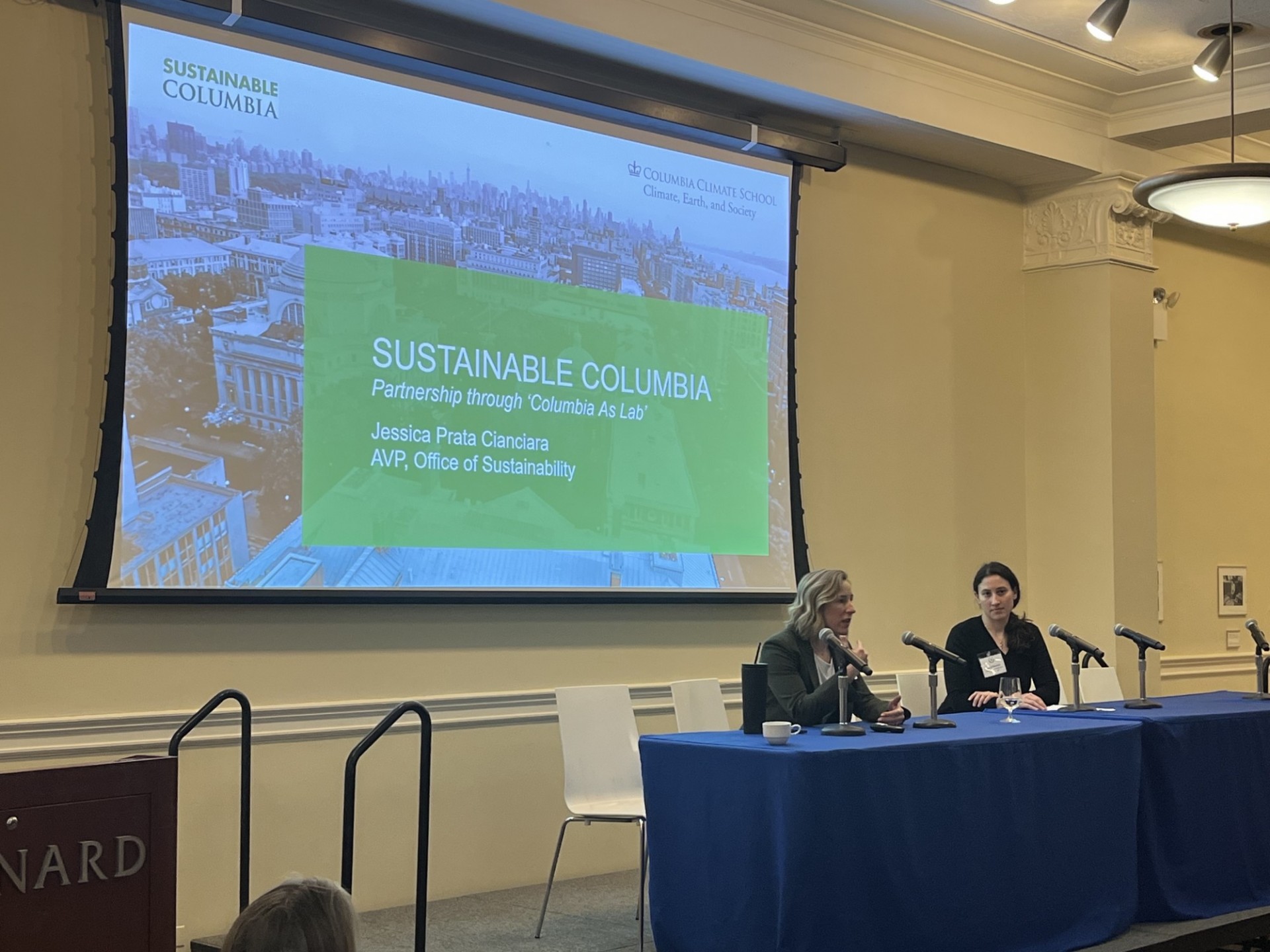
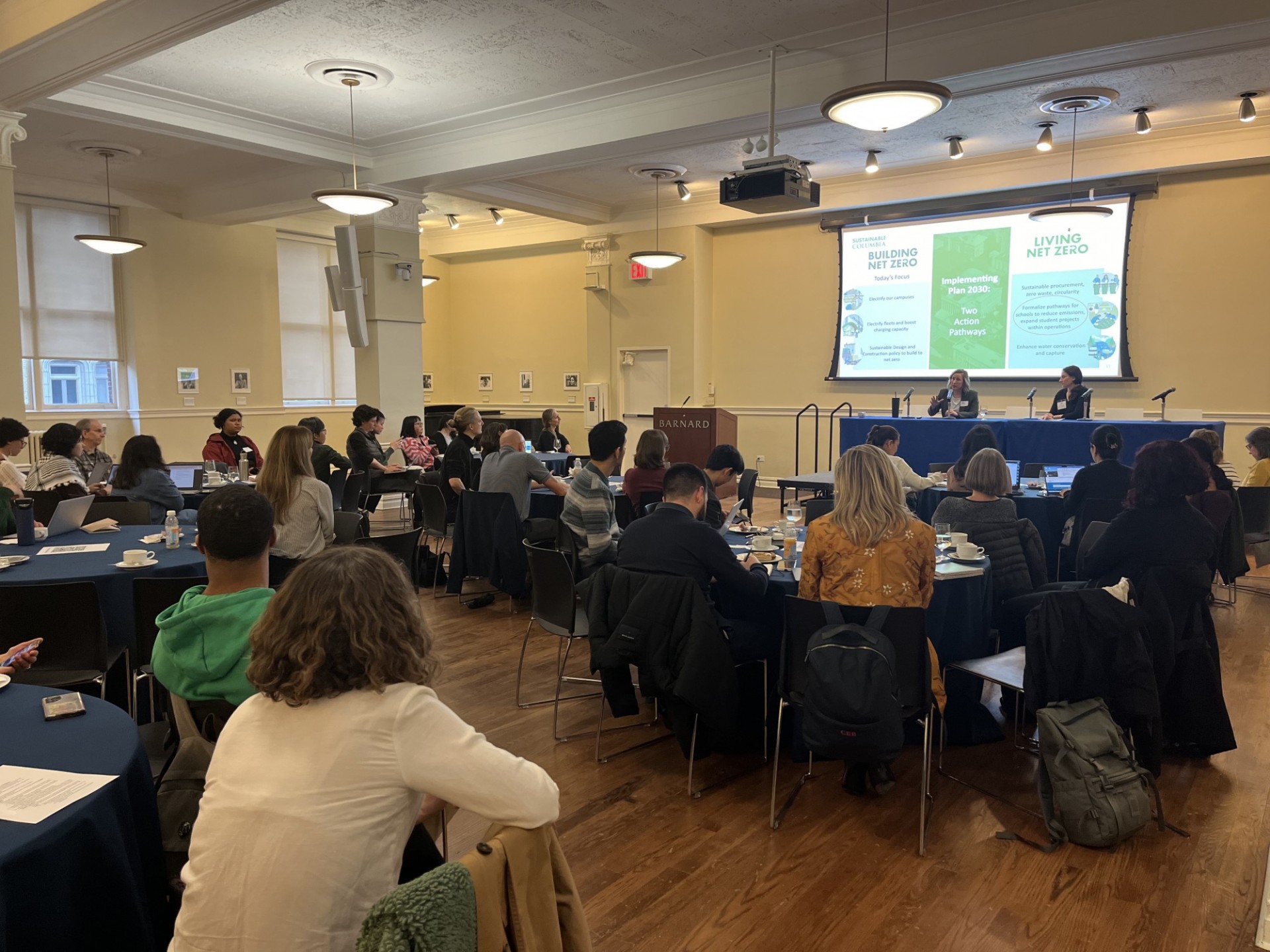
At Wednesday’s event “Everyone Can Teach Climate,” leaders from Columbia University and Barnard College gathered for a morning of panel discussions in support of Worldwide Climate and Justice Education Week. The shared goal was to engage in an inclusive conversation around scaling up and improving the teaching of climate and justice.
Jessica Prata, Assistant Vice President for Columbia’s Office of Sustainability, participated in a panel called “Campus as a Living Lab: Connecting to Campus Sustainability.” Jessica’s experience leading Columbia’s Sustainability Office, which has partnered with many student research groups over the years to conduct real-world sustainability research using the Columbia campus as a subject, was a valuable addition to the panel.
“The opportunity to use Columbia’s campus as a living lab enables us to engage our committed and passionate students in real-world sustainability challenges,” said Prata. “The students have provided, time and time again, valuable solutions that Columbia can implement into its operations to make our campus more sustainable.”
According to the event organizers, as effective planetary scale action on climate and justice becomes ever more urgent, education of all kinds and at all levels is key to equip our societies to surmount this historic challenge. Universities and colleges are coming together in networks to share and encourage needed campus and curricular change. With core and foundation classes, strong sustainability operations and engaged approaches to pedagogy, Columbia and Barnard have unique opportunities to engage in and participate in this critical movement forward.
The theme “Everyone Can Teach Climate” emphasizes that teaching about climate and our planetary future touches every aspect of society and hence engages all disciplines, schools and operations. Some goals of the session included:
- Share ideas and resources to strengthen campus learning, coordination and collaboration.
- Bring greater awareness to the state of climate, justice and environmental education on campus and our outreach, service and fourth purpose activities.
- Co-design and collaborate with peers and experts to integrate climate into a class, no matter what discipline and to foster interdisciplinarity and holistic thinking.
- Build networks and new connections among students, faculty, researchers and staff to further ongoing improvements.
About Plan 2030’s Campus as a Living Lab Initiative
Universities are uniquely poised to pursue a multidisciplinary approach for engaging students and faculty to help solve real-world problems on campus. Using campus as a living lab helps to foster collaboration between students, faculty, and staff, brings the cutting-edge research of the University to the operations of campus, and provides a chance to teach students to be sustainability leaders of the future. To engage students, the University frequently serves as a client for student capstone and senior thesis projects. This allows for a deeper understanding of the operations of the University and applies the talented minds of Columbia students in solving real-world problems.
To learn more, visit Sustainable Columbia’s Culture Change and Campus as a Living Lab landing page.
